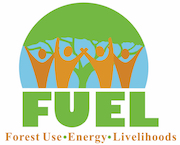Energy production and use are the largest man-made sources of air pollution; thus, energy access and air quality are intricately linked with implications on human health and climate. In Yangon, a large segment of an informal settlement population lack access to electricity, and clean and modern cooking fuels and technologies, thus making them rely on solid fuels (charcoal and wood) to meet household energy needs. These solid fuels burned in open fires or poorly ventilated stoves emit household air pollution, a major contributor to morbidity and mortality, climate-damaging pollutants and forest degradation. This project will characterize and examine the determinants of energy access in peri-urban Yangon, one of Asia’s fastest growing cities. Through a case-control study design, qualitative and quantitative household data will be collected in three settings: informal and formal settlements in peri-urban Yangon, and a nearby rural area. The project is also initiating citizen science air monitoring activities with youths in the study site to raise awareness, build science literacy and provide crowdsourced air quality data for engagement with policy influencers. Our ultimate goal is to raise awareness about the heterogeneous impacts of energy poverty on human health and well-being, and foster promotion of clean energy for sustainable and equitable urban development.
Research themes: Energy Poverty, Air Pollution, Citizen Science, Informal Settlement, Urban Studies
Research team: Ther Aung (UNC-CH), Pamela Jagger (UM)
Funding: National Geographic Society
Duration: 2018-2020

